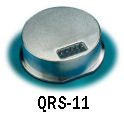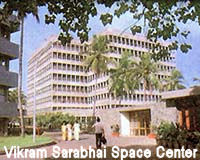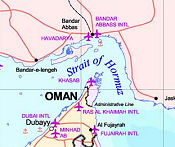 The QRS-11 navigational chip, perhaps the poster child for the so-called ITAR creep phenomenon, still bedevils the Directorate of Defense Trade Controls. Today, the DDTC issued a final rule amending the rule excluding the QRS-11 chip from the United States Munitions List. The rule attempts to address wider integration of the chip in civil aircraft but still doesn’t quite solve the problem.
The QRS-11 navigational chip, perhaps the poster child for the so-called ITAR creep phenomenon, still bedevils the Directorate of Defense Trade Controls. Today, the DDTC issued a final rule amending the rule excluding the QRS-11 chip from the United States Munitions List. The rule attempts to address wider integration of the chip in civil aircraft but still doesn’t quite solve the problem.
First, a little background is in order. As you may recall, the integration of the QRS-11 chip into Boeing aircraft sold to China led to a $15 million fine being imposed on Boeing when it failed to get DDTC export licenses for these aircraft. Recognizing the absurdity of requiring a license because of a $2,000 part in a commercial aircraft costing $100 million or more, DDTC added a Note to category VIII of the ITAR to exempt the QRS-11 chip and other quartz rate sensor chips when (a) it was integrated into the standby navigational system of a commercial aircraft and (b) the Department of Commerce’s Bureau of Industry and Security (“BIS”) determined that the chip was subject to its own licensing jurisdiction.
Shortly thereafter BIS amended the EAR to include ECCN 7A994 which covers the QRS-11 chip (but not other quartz rate sensors) when integrated into a commercial standby instrument system of a civil aircraft. Under ECCN 7A994, the QRS-11 chip requires a BIS license for exports to all destinations except for Canada.
Traditionally inertial navigational chips and systems had been used in standby systems to the GPS used in the primary system. A standby or backup system supplies navigational information when the primary GPS is unable to get a lock on the GPS satellites and is unable to provide location information. The QRS-11 chip, however, is increasingly being integrated into primary navigational systems of civil aircraft and thus no longer subject, in those instances, to the exemption adopted by DDTC.
The new rule reflects this change and exempts the QRS-11 chip and other quartz rate sensors integrated into a primary instrument system of a commercial aircraft. The amended rule also requires a notification from BIS that the chip when integrated into a primary system is subject to BIS jurisdiction. And that’s the rub. BIS has not yet amended its rules to include in ECCN 7A994 chips integrated into primary instrument systems. Accordingly, notwithstanding DDTC’s amendment, no chip integrated into a primary system will be subject to the DDTC exemption. And there’s no indication when BIS will get around to amending its rules to add chips in primary instrument systems.
It should probably come as no surprise that as the price of quartz rate sensor chips drops, they are also being integrated into the navigational and stabilization systems of automobiles. So you may soon or already be driving an export-controlled car. As the pace of ITAR creep accelerates we may have to call it something else — ITAR surge, perhaps.

 Posted by
Posted by  Category:
Category: 

 The Bureau of Industry and Security (“BIS”) has issued a
The Bureau of Industry and Security (“BIS”) has issued a  The Bureau of Industry and Security (“BIS”) released today a
The Bureau of Industry and Security (“BIS”) released today a  The Bureau of Industry and Security (“BIS”) just published on its website a settlement agreement with someone who appears to been simply a shipping clerk at Universal Technology, Inc. Back in June 2006, BIS entered into a
The Bureau of Industry and Security (“BIS”) just published on its website a settlement agreement with someone who appears to been simply a shipping clerk at Universal Technology, Inc. Back in June 2006, BIS entered into a  The Bureau of Industry and Security (“BIS”) published today in the Federal Register an
The Bureau of Industry and Security (“BIS”) published today in the Federal Register an 

